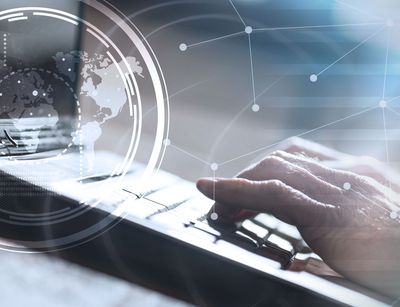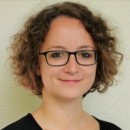Digital Lab
Event Formats
Past Events
08.01.2025, Workshop
Research data management in the international Research Training Group "Belongings"
Eva Ommert (ReCentGlobe)
13.12.2024, Lectures in the series Cultural Transfer
Cultural Transfers and Digital Humanities – Methods and Challenges
Tommaso Venturini (University of Geneva); Jana-Katharina Mende (University of Halle-Wittenberg)
26.11.2024, Lecture (GlobeLecture)
“Figuring Out the Past”: Do Numbers Tell Stories?
Silke Schwandt (Universität Bielefeld)
Video
07.11.2024, Lecture
Multilingual Digital Humanities Research: A Critical Overview
Cecily Raynor (McGill University, Montreal, Canada)
SLIDES
06.11.2024, Workshop
Research data management in the LeipzigLab “Plants and Politics”
Eva Ommert (ReCentGlobe)
10.10.–21.11.2024, Workshop series
R for humanities and social sciences: basics to first applications
Thomas Köntges (YouSayData)
02.07.2024, Methods Basar
Taking Bibliometrics to the Next Level: Measuring Book Publications
Kathleen Schlütter & Carolina Rozo Higuera (ReCentGlobe)
SLIDES
28.05.2024, Methods Basar
Methods of Map Analysis: Between Hermeneutic Perspective and Digital Data Processing
Jana Moser & Philipp Meyer (Leibniz-Institut für Länderkunde, IfL / SFB 1199)
Slides
24.05.2024, Lecture
Nodegoat as a Tool for Historically Oriented Research
Kathleen Schlütter & Carolina Rozo Higuera (ReCentGlobe)
07.05.2024, Methods Basar
EpiMedDat: an Open Data Collection on Medieval Disease Outbreaks
Martin Bauch & Thomas Wozniak (Leibniz-Institute for the History and Culture of, GWZO)
Slides
23.04.2024, Project Consultation Hour
Die Treuhand im Spiegel der zeitgenössischen Medien: Neue Zugänge zu alten Quellen
Jannis Klähn (Computational Humanities Group)
23.01.2024, Methods Basar
A Scalable View on the Visual Narrative: Exploring Relationships in News Videos
Nicolas Ruth (Computational Humanities Group)
17.01.2024, Workshop
AI-enhanced Scholarly Writing: A Holistic Workflow
Vera Piontkowitz (Computational Humanities Group)
16.01.2024, Project Consultation Hour
Historical Transport GIS
Thorben Pelzer (ReCentGlobe)
13.12.2023 Methods Basar
Utilizing APIs for Humanities Research. Examples from the New York Times and The Guardian
Vincent Schober (ReCentGlobe)
SliDES
05.12.2023 Workshop
OCR4all – ein Tool zur automatischen Texterkennung von historischen Quellen
28.11.2023 Methods Basar
Distant-Viewing Alchemical Laboratory Apparatus in Early Modern Print
Sarah Lang (Karl-Franzens-Universität Graz)
SliDES
21.11.2023 Project Consultation Hour
Literatur und Lebensalter. Das präzise Lebensalter als abstrakte Abbreviatur in erzählenden Texten des ausgehenden 18. und 19. Jahrhundert
Charlotte Rathjen (Institut für Germanistik)
07.11.2023 Methods Basar
Exploring the History of the Entertainment Industries with GIS-based Mapping
Antje Dietze (SFB 1199, ReCentGlobe)
SliDeS
18.07.2023 Methods Basar
GlobeData Repository: Archiving Your Research Data and Materials
Eva Ommert (SFB 1199, ReCentGlobe)
SliDeS
06.06.2023 Methods Basar
Visual Narratives in TV News: a Method for Analysis of Archival Footage
Katarina Ristić (Global and European Studies Institute)
23.05.2023 Methods Basar
Living with ChatGPT – Austauschforum zum Einsatz von KI-Tools in der Wissenschaft
Vera Piontkowitz (Forum Digital Humanities Leipzig)
SliDeS
16.05.2023 Project Consultation Hour
The Spatial and Digital Analysis of 19th-Century Istanbul through a City Inventory (Mir'ât-ı İstanbul)
Fatma Aladağ (Leipzig University/Üsküdar University)
21.02.2023 Methods Basar
Layering in GIS as a Method of Historical Deconstruction and Source Criticism
Julius Wilm (SFB 1199, ReCentGlobe)
SliDeS
14.02.2023 Methods Basar
Digitale Annotation und Geovisualisierung am Beispiel der Reisetagebücher von Marco Polo
Andreas Niekler (Computational Humanities, Institut für Informatik)
SliDeS
6.12.2022 Methods Basar
Zoetrope – ein Prototyp zur interaktiven computergestützten Analyse von Videos
Bernhard Liebl (Computational Humanities, Institut für Informatik)
15.11.2022 Methods Basar
Datenbankerstellung in den Humanities mit der Software Heurist
Thorben Pelzer (SFB 1199, ReCentGlobe)
SliDes
25.10.2022 Methods Basar
Ba[sic?] – ein Werkzeug zur Suche und Identifikation von Normdaten
Uwe Kretschmer (Sächs. Akademie der Wissenschaften, SAW)
SliDeS
MAILING LIST Registration
Join our mailing list to be informed about current Digital Lab events.
Concept
The use of new, digital procedures requires the acquisition of appropriate skills to operate the digital tools - for example, basic knowledge in the areas of data modelling, statistical analysis and programming (data literacy). At the same time, domain knowledge in the humanities and social sciences is incorporated into the development of digital analysis methods. Regular reflection on the mutual influence of digital methods and existing theories and epistemes also opens up the possibility of epistemological experiments in the Digital Lab.
The Lab's work covers three fields - 1) digitisation and datafication, 2) analysis and exploration as well as 3) archiving and reuse - which often intersect seamlessly in the project context. A further, overarching area is 4) research data management (RDM). All potentially relevant digital research activities can be pooled along these working areas and channelled as interdisciplinary research projects. In the course of time, specialised "instruments, techniques and equipment" (Hannaway, 1986) will emerge in all these fields of work, as well as good practices for their optimal operation, which can flow back into various training and qualification programmes. This applies in particular to the Digital Humanities degree programmes (B.Sc. / M.Sc.) at the Institute of Computer Science and the curriculum for structured doctoral training at the Graduate School Global and Area Studies (GSAGS), which is linked to ReCentGlobe. The certificate programme for postdocs at the Graduate School and the M.A. programmes at the Global and European Studies Institute (GESI) can also benefit from this.
Task Areas
The central step of digitisation involves the transfer of analogue research objects into digital, machine-readable research data. Inherent in the associated datafication is the fact that socio-cultural data - which is often characterised by a high degree of ambiguity and heterogeneity - must always be modelled and represented in a formal way in order to be made accessible to computer-aided analyses in the first place. This translation step, which often involves annotation and enrichment of the data in addition to indexing, represents a central challenge that is the subject of much debate in the digital humanities.
Specific sucject areas:
- Digital recording (scanning, audio and video digitisation)
- Semi-automatic transcription (OCR, speech-to-text, image-to-text, etc.)
- Provision of various data formats and corresponding viewers / search functions
- Annotation and enrichment (object recognition, segmentation, feature extraction for similarity searches, etc.)
- Semi-automatic cataloguing and keywording
- Clustering and aggregation of metadata
- Linking of data records (to each other / to standardised data)
- Quality control (schema level, plausibility checks, outlier analyses...)
- Digital source criticism
After the successful digitisation and datafication of research objects, exciting questions arise regarding the use of digital tools and methods, for example when it comes to finding quantitative patterns in the previously modelled data and validating them against qualitative domain knowledge of experts. In this field of work, analytical methods with a quantitative-empirical focus (e.g. in the sense of cultural analytics) are to be expected, but also innovative approaches in the field of tension between close and distant reading, which are often referred to as scalable reading. In the latter case, methods of explorative data analysis and Visual Analytics are particularly suitable.
Specific sucject areas:
- Overview of existing offers of digital tool (DH tool directories)
- Application and development of quantitative methods in the spirit of cultural analytics / computational social science / humanities data science
- Analytical approaches in the sense of close / distant / scalable reading
- Adaptation of methods from other domains (e.g. cultural evolution)
- Method evaluation (qualitative and quantitative)
- Reflection on methods, epistemological implications and theory development
- Visualisation / Visual Analytics
- Explorative tools and information systems (Research Software Engineering)
- Immersive and interactive technologies for the humanities and social sciences (Humanist-Computer-Interaction, Immersive Humanities)
For the archiving and publication of research data, the Dataverse-based repository „GLOBEDATA“ is available to the research projects based at the centre, which will be transferred to regular operation at the end of 2022. As a specialised repository, GlobeData is also open to researchers from other institutions and from all over the world. In line with the "distributed archiving" approach, metadata can also be mapped in more specialised repositories or, conversely, fed into GlobeData from those repositories via harvesting. Between the publication of research data and pure (closed) archiving for review purposes, the repository also offers tiered variants such as the targeted release of data for specific persons or temporary embargoes. The coordinated curation, collection and provision of research data via GlobeData also offers the opportunity for the targeted reuse of data in new research projects at the centre and, of course, the conception of new projects based on existing databases.
Specific subject areas:
- Quality assurance of the data records
- Verification of legal requirements
- Ensuring comprehensible documentation
- Description of data records with standardised metadata
Research data management has received increased attention in the academic world in recent years. Across disciplines, researchers are called upon to address the question of the whereabouts of their data and materials after the completion of a project or publication and, if necessary, to make them available to others for review or subsequent use (see point 3). This poses particular challenges for the humanities, social sciences and cultural studies. The fundamental aim of this working area is therefore to develop and support an appropriate RDM for the networks and projects based at the Centre.
When working with digital data, questions regarding the handling of this data are fundamentally relevant in all phases of the research process. It is generally a prerequisite for later archiving and, where applicable, subsequent use by others, but some aspects such as data documentation or legal issues are also relevant and useful independently of this.
Konkrete Themenbereiche:
- Creation of data management plans in research projects
- Setting up technical services (e.g. storage, backup, encryption)
- Advice on various RDM topics (e.g. data documentation and organisation, legal aspects)
- Archiving and, if applicable, publication of research data and materials in the centre's own repository GlobeData
- Advice on RDM for funding applications
See also:
Eva Ommert (2023): Forschungsdatenmanagement im SFB 1199. SFB 1199 Working Paper 39. https://research.uni-leipzig.de/~sfb1199/publications/1-1-2023_sfb_-working-paper_-forschungsdatenmanagement-10-mar-2023/












